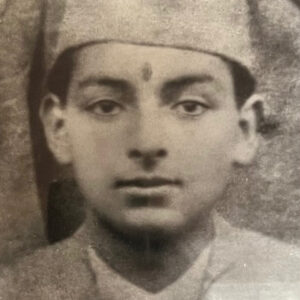 1918May 10, 1918Durga Prasad Dhar is born in Srinagar, Kashmir
1918May 10, 1918Durga Prasad Dhar is born in Srinagar, KashmirDurga Prasad Dhar is born to Shri Srikant Dhar and Dhanawati Dhar in Safa Kadal, Srinagar.
- January 1, 1935Attends the Tyndale Biscoe School1935
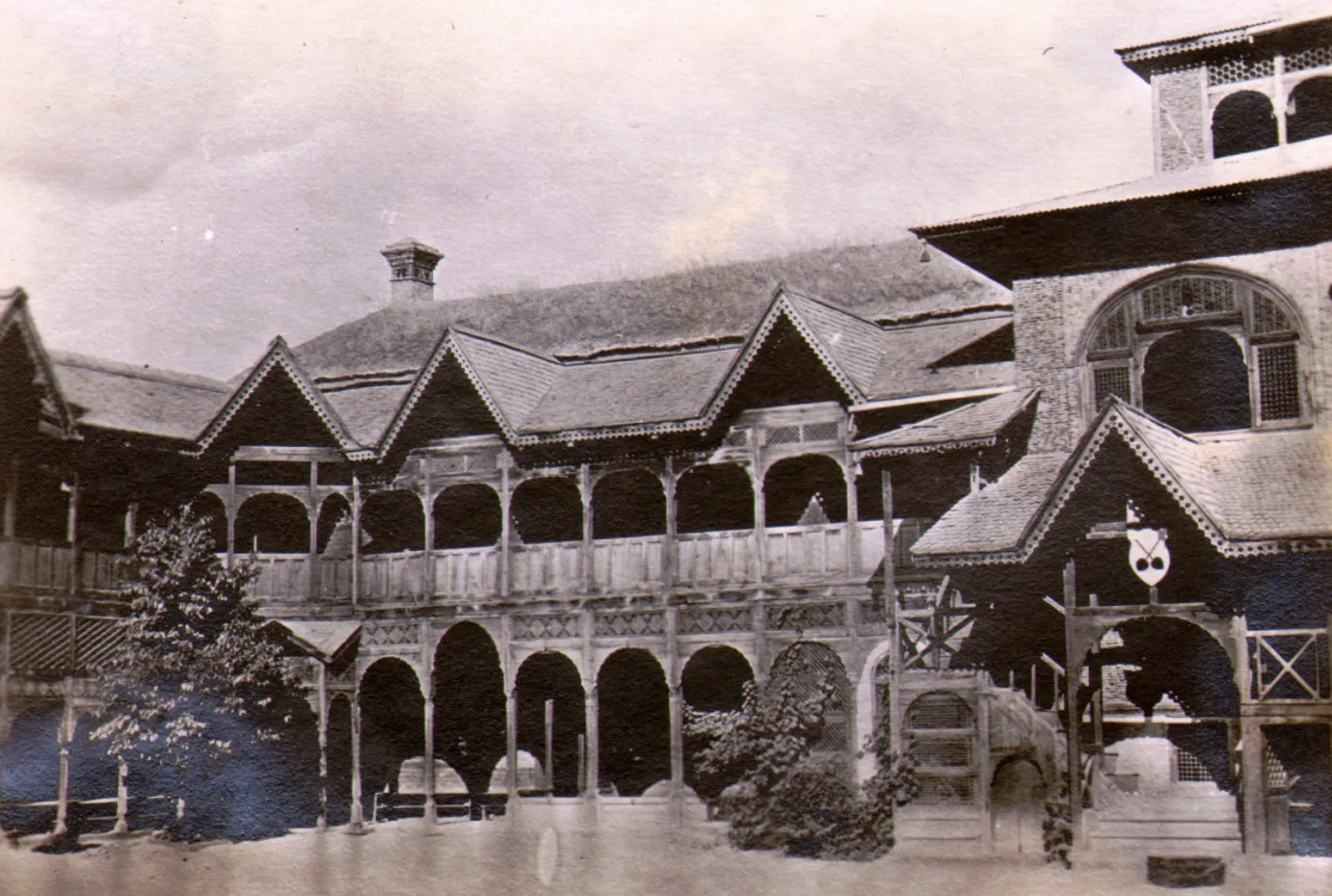
- 1937January 1, 1937Completes his BA from Punjab University
- July 1, 1940Graduates with an LLB from the University of Lucknow1940
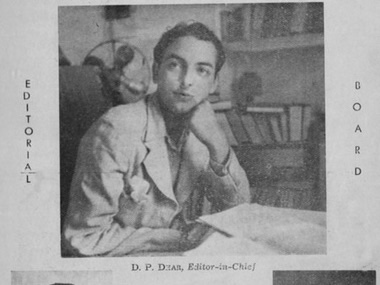
At the University of Lucknow, Dhar wins the student union elections, beating candidates from the Congress and the Muslim League to become President of the Student Union. It's the beginning of a long and successful political career. It's also here that he first meets Jawaharlal Nehru, who is most impressed by this young Kashmiri. The two strike up a correspondence that shapes Dhar's future politics.
He also serves as the Editor-in-Chief of The Lucknow University Union Journal. He graduates with an LLB in 1940.
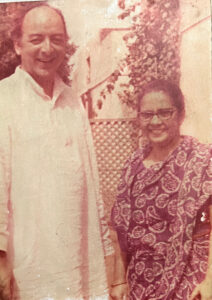 1937August 1, 1937Marries Vijay Lakshmi Mattoo
1937August 1, 1937Marries Vijay Lakshmi MattooDP Dhar marries Vijay Lakshmi Mattoo, known affectionately later as Rani Bhabhi, in Srinagar.
- August 1, 1940Joins the National Conference1940

In Photo: Sheikh Abdullah (seated left), Jawaharlal Nehru (seated centre), Khan Abdul Ghaffar Khan (seated right), DP Dhar (standing third from right)
- 1941May 18, 1941His son, Vijay Dhar is born in Srinagar
- May 15, 1946Arrest during the Quit Kashmir movement1946
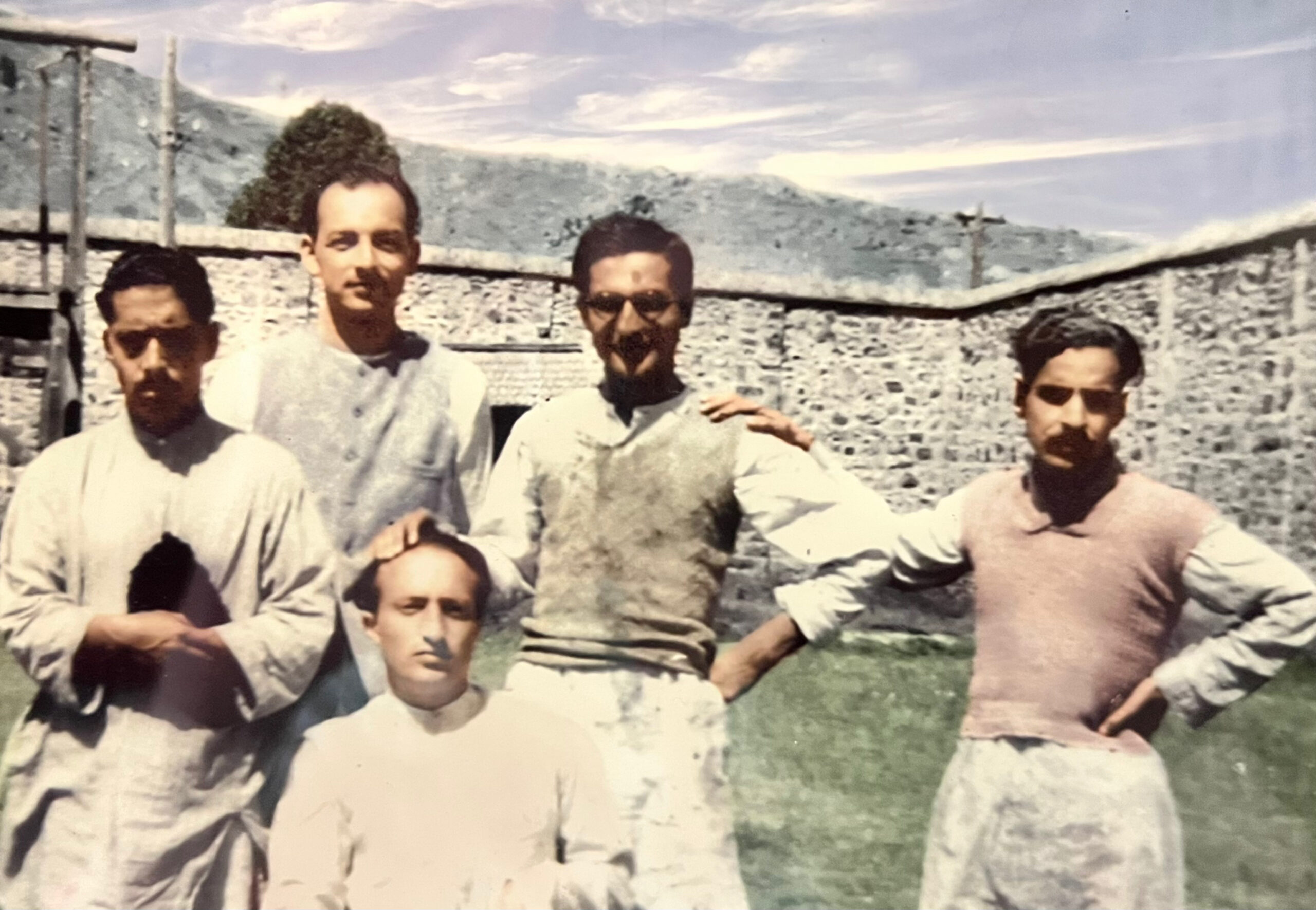
DP Dhar (second from left) in jail during the Quit Kashmir movement in 1946.
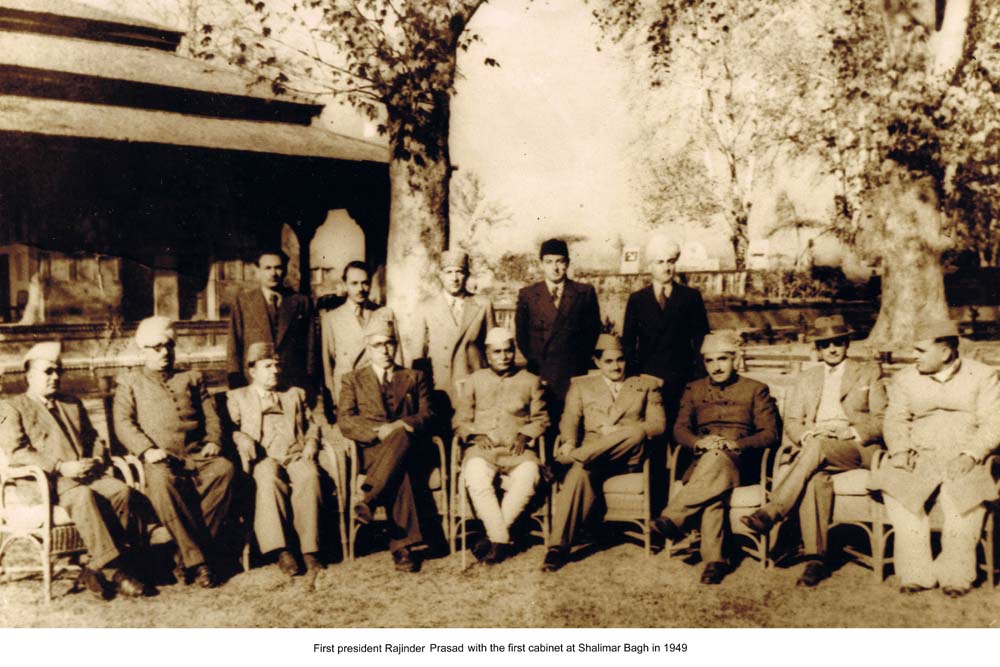 1947October 30, 1947Appointed Home Secretary in the Emergency Administration
1947October 30, 1947Appointed Home Secretary in the Emergency AdministrationAfter Maharaja Hari Singh signs the Instrument of Accession, Dhar takes charge as Home Secretary at the relatively young age of 30 in Sheikh Abdullah's Emergency Administration.
Dhar organises and leads the Jammu and Kashmir Militia, defending the Valley against Pakistani raiders.
- February 5, 1948Delegate to the United Nations Security Council1948

Dhar accompanies Sheikh Abdullah as part of the first delegation to the United Nations Security Council that raises the invasion of Kashmir by Pakistani raiders with UNSC Resolution 38.
 1950January 1, 1950Big Landed Estates Abolition Act
1950January 1, 1950Big Landed Estates Abolition ActDhar supports the radical land reforms and is one of the main proponents of this historic act.
- October 1, 1951Elected to the J&K Constituent Assembly from Kulgam district1951

 1952January 1, 1952Delegate to the UN General Assembly Paris Session
1952January 1, 1952Delegate to the UN General Assembly Paris SessionL to R: Brig. Sam Manekshaw, General Chowdhary, DP Dhar at the Paris United Nations meeting in 1952.
- November 7, 1951Joins the Basic Principles Committee of the J&K Consitutent Assembly1951
- 1952June 10, 1952Joins the Drafting Committee for the J&K Constitution
- August 9, 1953Becomes Home Minister in Bakshi Ghulam Mohammad's government1953

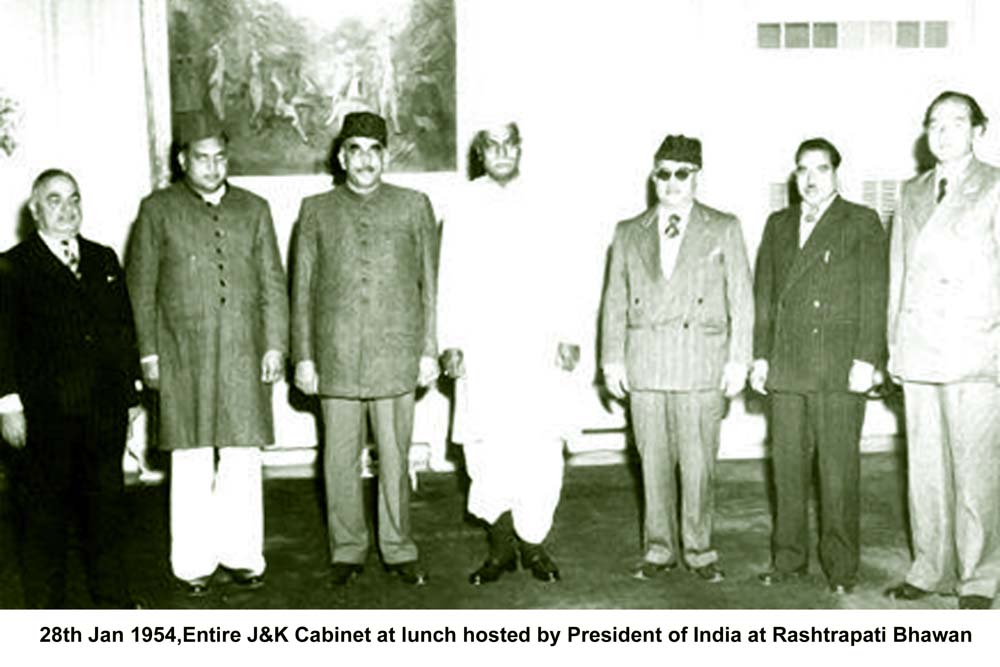 1957January 1, 1957Sets up the Democratic National Conference
1957January 1, 1957Sets up the Democratic National ConferenceDP Dhar, GM Sadiq and others resign from Bakshi Ghulam Mohammad's government and found the Democratic National Conference.
- March 25, 1957Elected to J&K Legislative Assembly1957
 1962January 1, 1962Elected to the Legislative Council
1962January 1, 1962Elected to the Legislative CouncilDhar remains a member of the J&K Legislative Council till 1968.
- November 11, 1972Elected to the Rajya Sabha1972
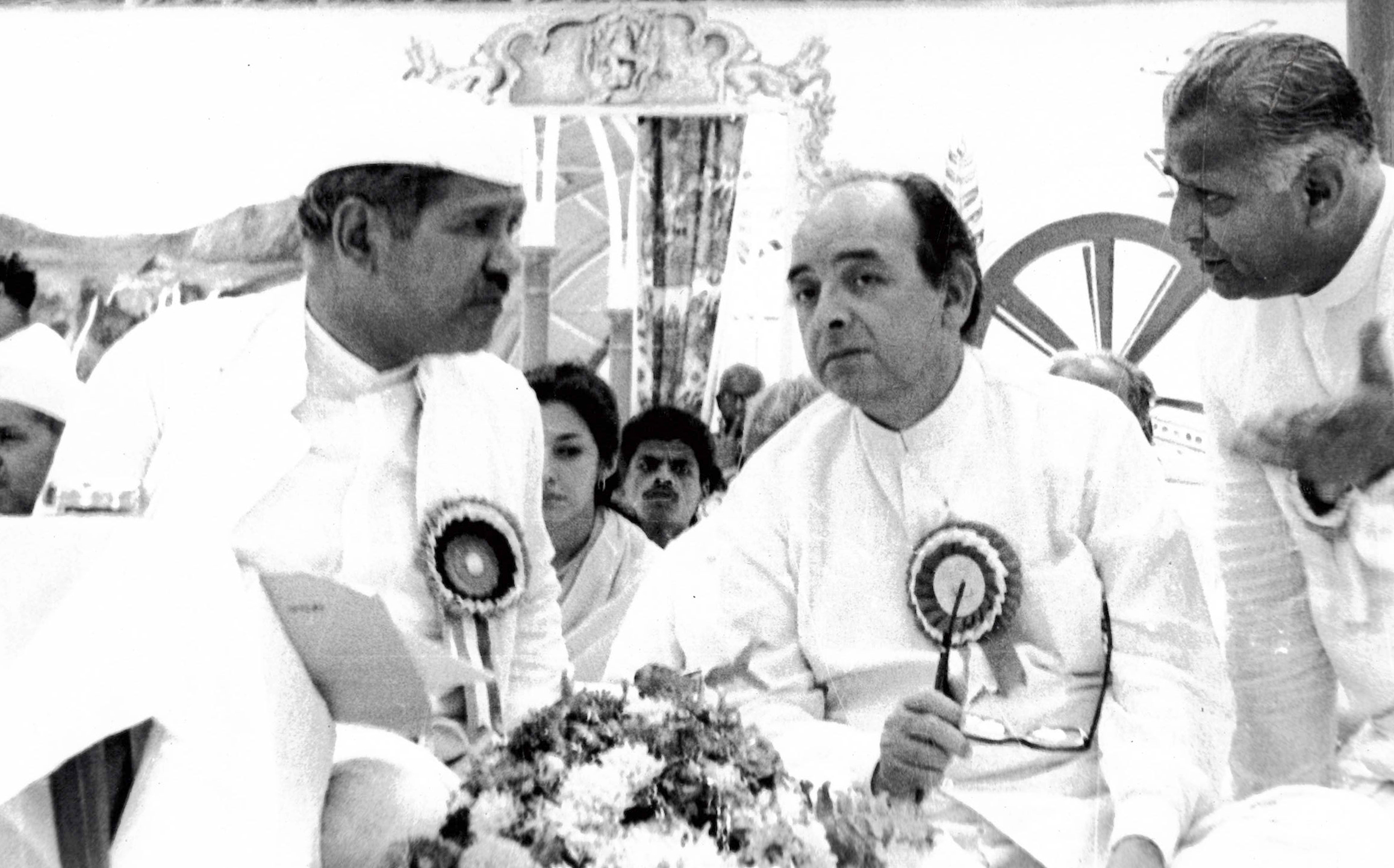
Dhar is elected to the Rajya Sabha, representing Jammu & Kashmir.
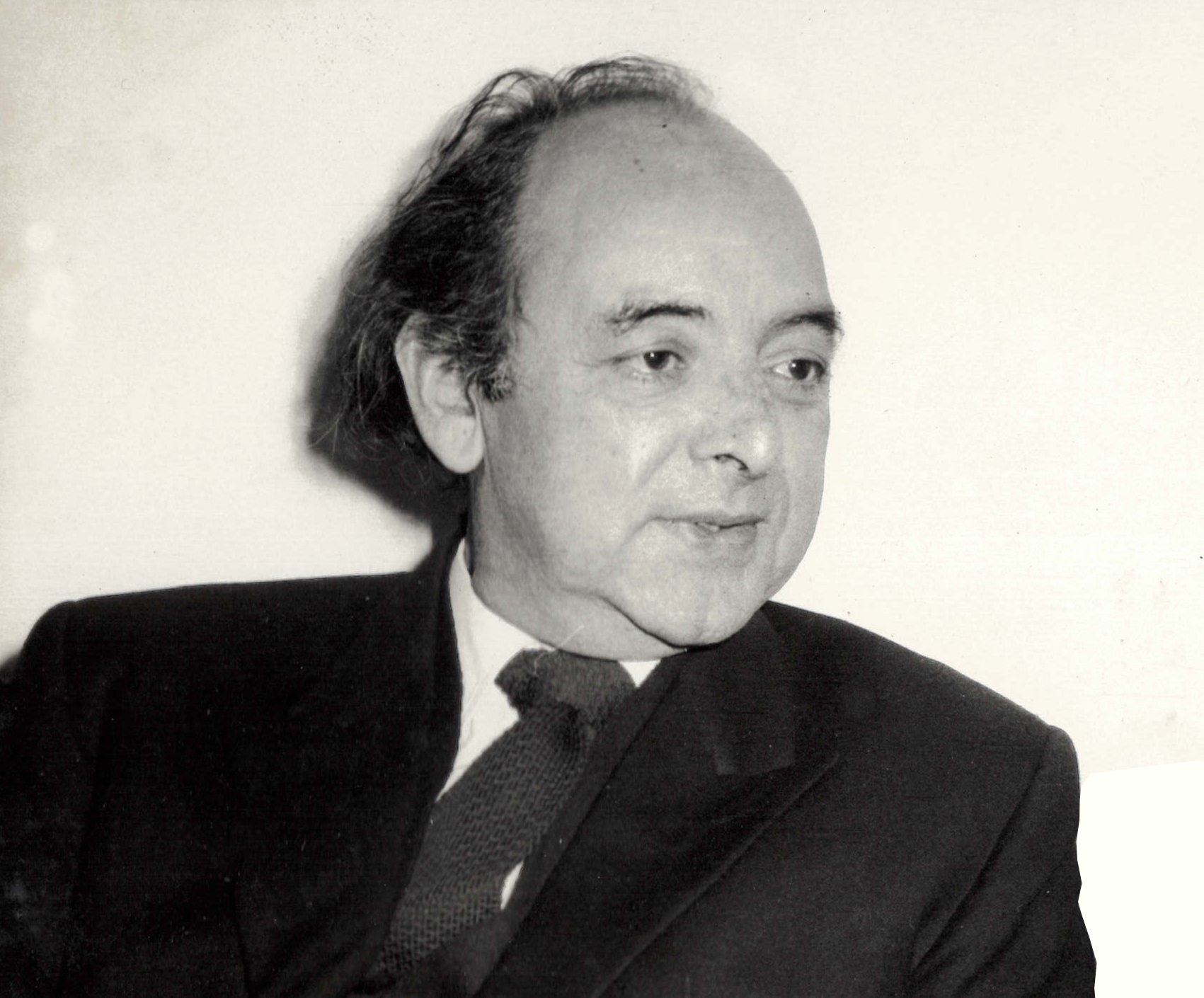 1969February 1, 1969Ambassador to the Soviet Union
1969February 1, 1969Ambassador to the Soviet UnionHe is appointed ambassador to the Soviet Union and Mongolia.
- August 1, 1971Chairman of the Policy Planning Committee in the Ministry of External Affairs1971

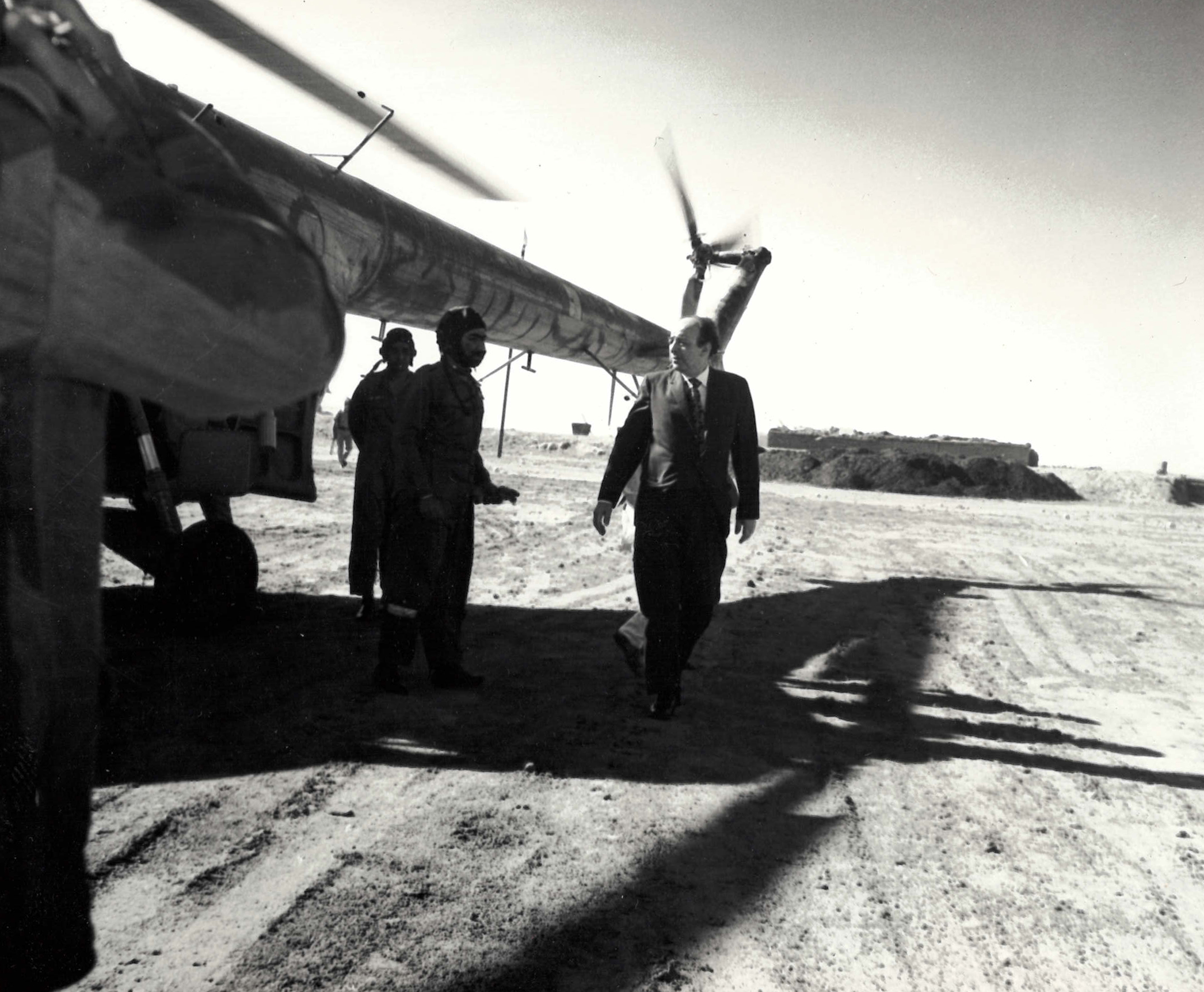 1971August 4, 1971Begins negotiations for an Indo-Soviet Treaty
1971August 4, 1971Begins negotiations for an Indo-Soviet TreatyDhar flies to Moscow acting as a special envoy for Mrs. Gandhi. Diplomatic observers believe that with tensions heightening, India asked Moscow for a commitment in the event of a Pakistani attack. A few days later, Soviet Foreign Minister Andrei A. Gromyko arrives in India as a gesture of solidarity.
- August 9, 1971The Indo–Soviet Treaty of Peace, Friendship and Cooperation is signed1971
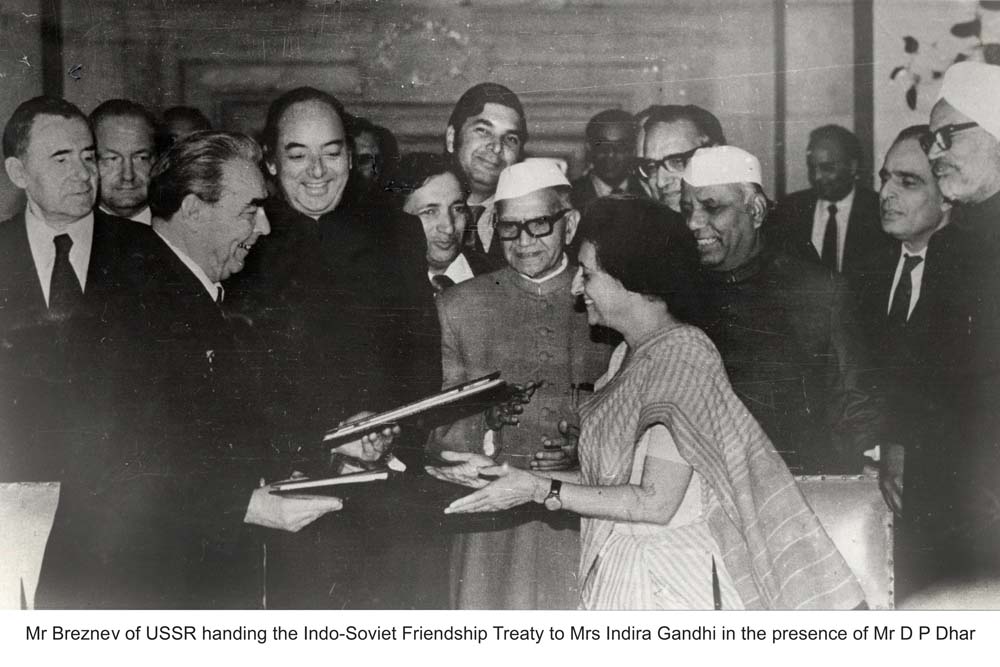
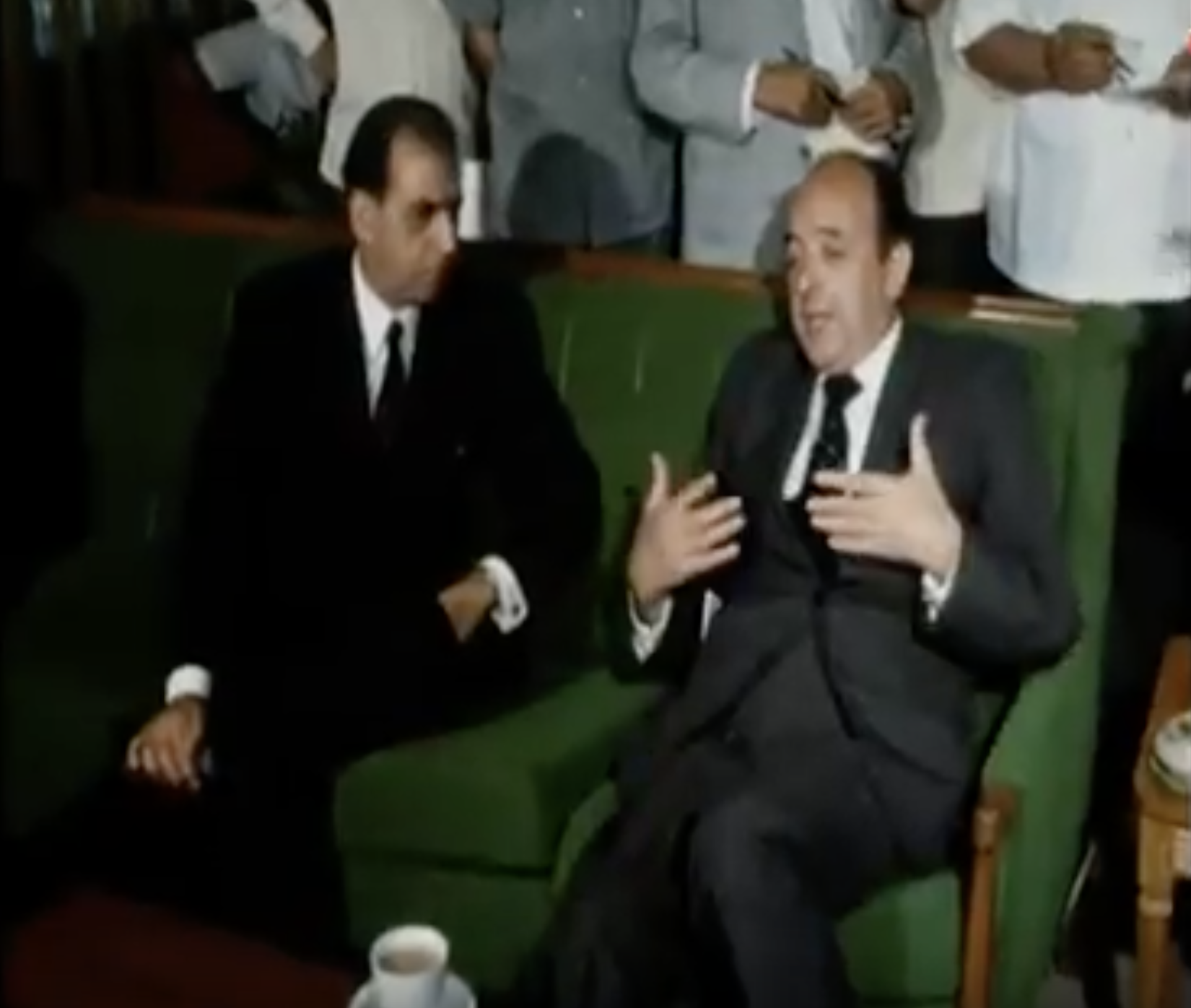 1972April 26, 1972Peace negotiations with Pakistan in Murree
1972April 26, 1972Peace negotiations with Pakistan in MurreeDhar is appointed India's chief negotiator for peace talks ahead of the Simla agreement. He leads a 17-member delegation to Murree, Pakistan and meets his counterpart Aziz Ahmed.
- April 28, 1972Discussions with Bhutto1972

Prime Minister Bhutto invites Dhar to meet him in Rawalpindi. They agree to a preliminary agenda for the scheduled talks between Bhutto and Indira Gandhi. This lays the groundwork for the Simla Agreement.
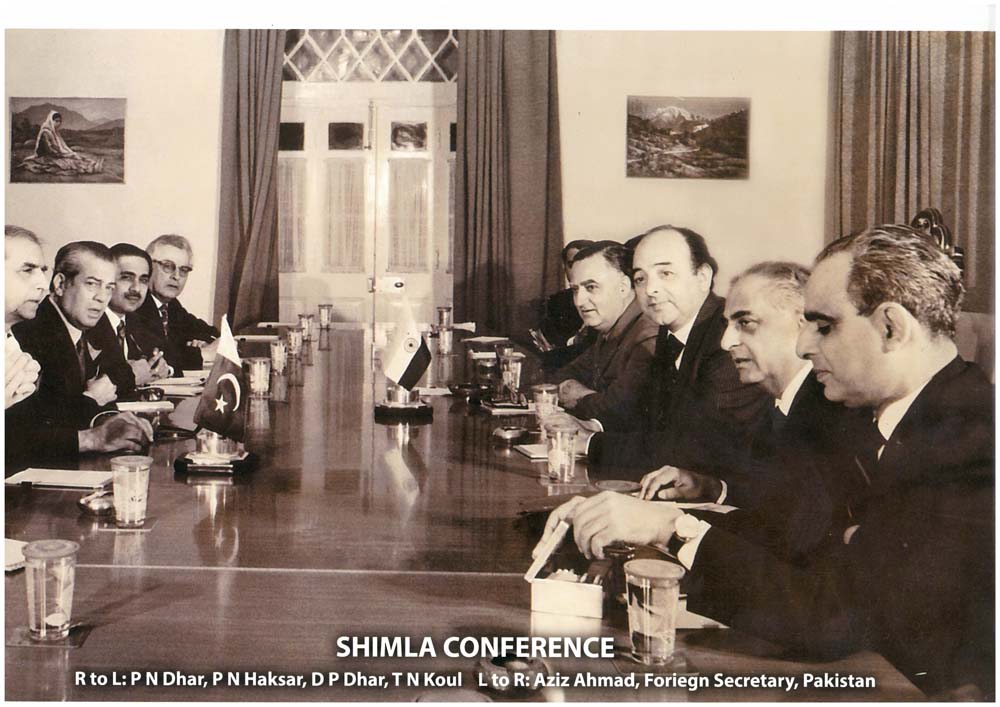 1972June 28, 1972The Simla Agreement
1972June 28, 1972The Simla AgreementDhar leads the Indian delegation at Simla.
However, on 30 June he suffers a mild heart attack and is rushed to hospital. He misses the last two days of the negotiations and the eventual signing of the agreement.
- July 23, 1972Deputy Chairman of the Planning Commission and Minister of Planning1972
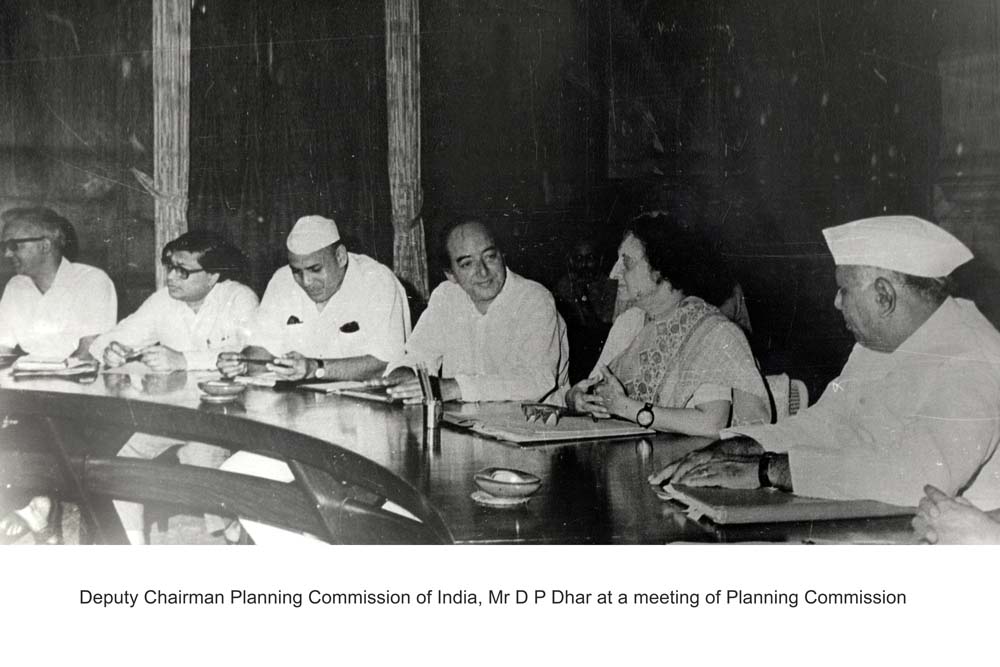
Dhar is appointed Deputy Chairman of the Planning Commission and the Minister of Planning in charge of India’s Fifth Five-Year Plan.
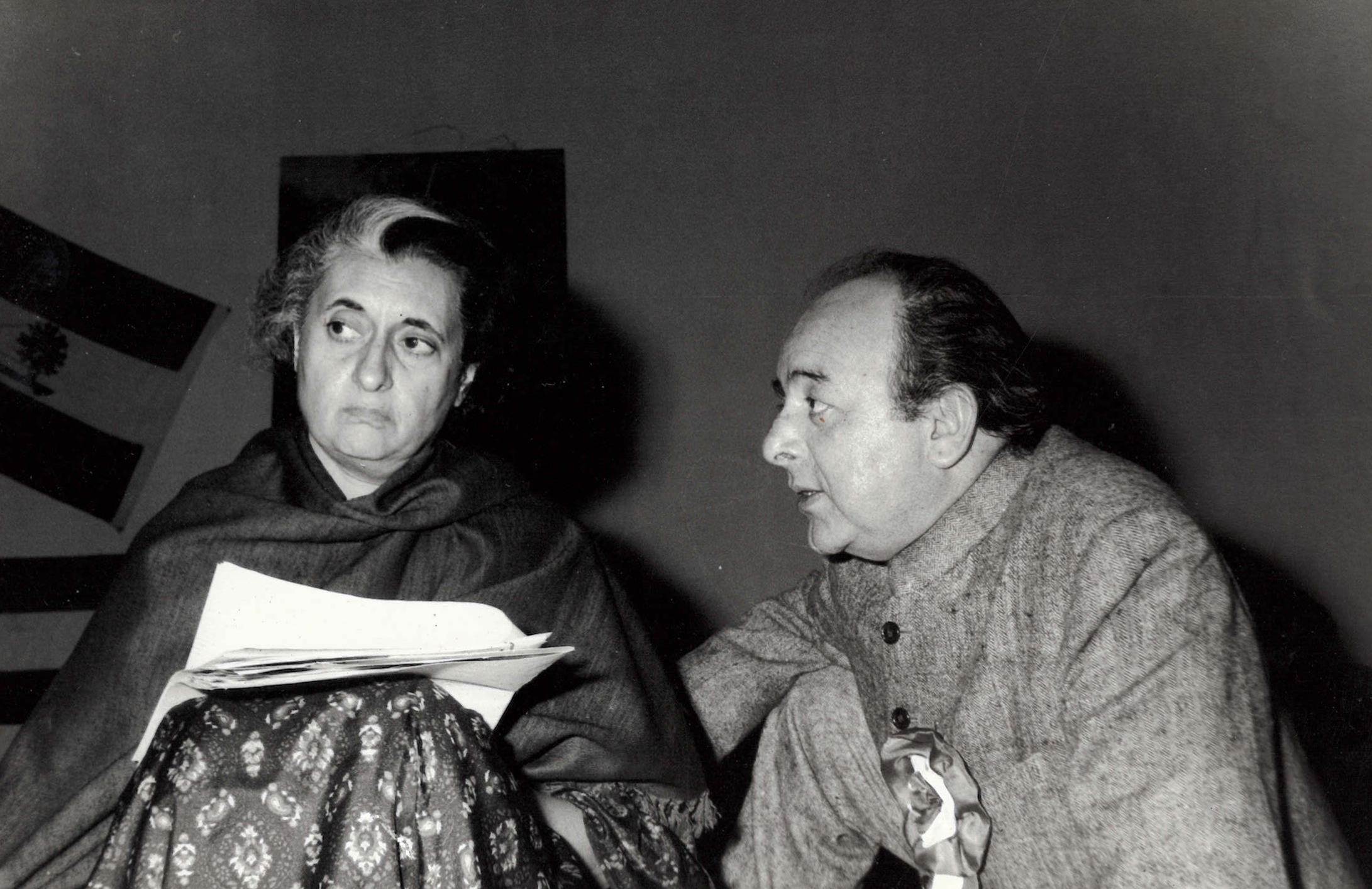 1972August 24, 1972Peace talks with Pakistan
1972August 24, 1972Peace talks with PakistanAs a new dispute over Kashmir arises, a special meeting between India and Pakistan is arranged in New Delhi.
"Durga Prasad Dhar, India's Planning Minister and Mrs. Gandhi's foreign policy adviser, who paved the way for the Simla meeting, is expected to hold talks with Mr. Ahmed, Secretary General of the Pakistan Foreign Ministry. An earlier meeting between the two men led to the Simla talks. Official sources here said the Friday meeting is aimed at ironing out the wrinkles that have arisen in carrying out the Simla agreement." (The New York Times, 24 August 1972)
- December 6, 1971The Liberation of Bangladesh1971
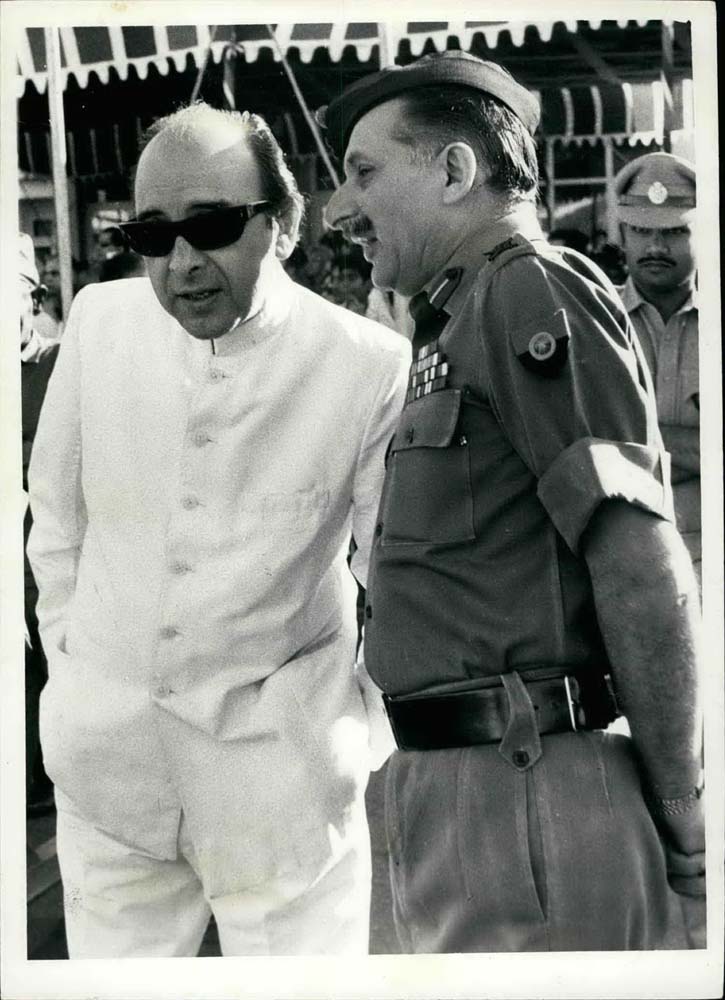
DP Dhar is one of the chief architects of India's strategy towards Bangladesh.
He is instrumental in activating Article 9 of the Indo-Soviet Treaty he negotiated that calls upon the USSR to come to India's aid in the Bay of Bengal in December 1971.
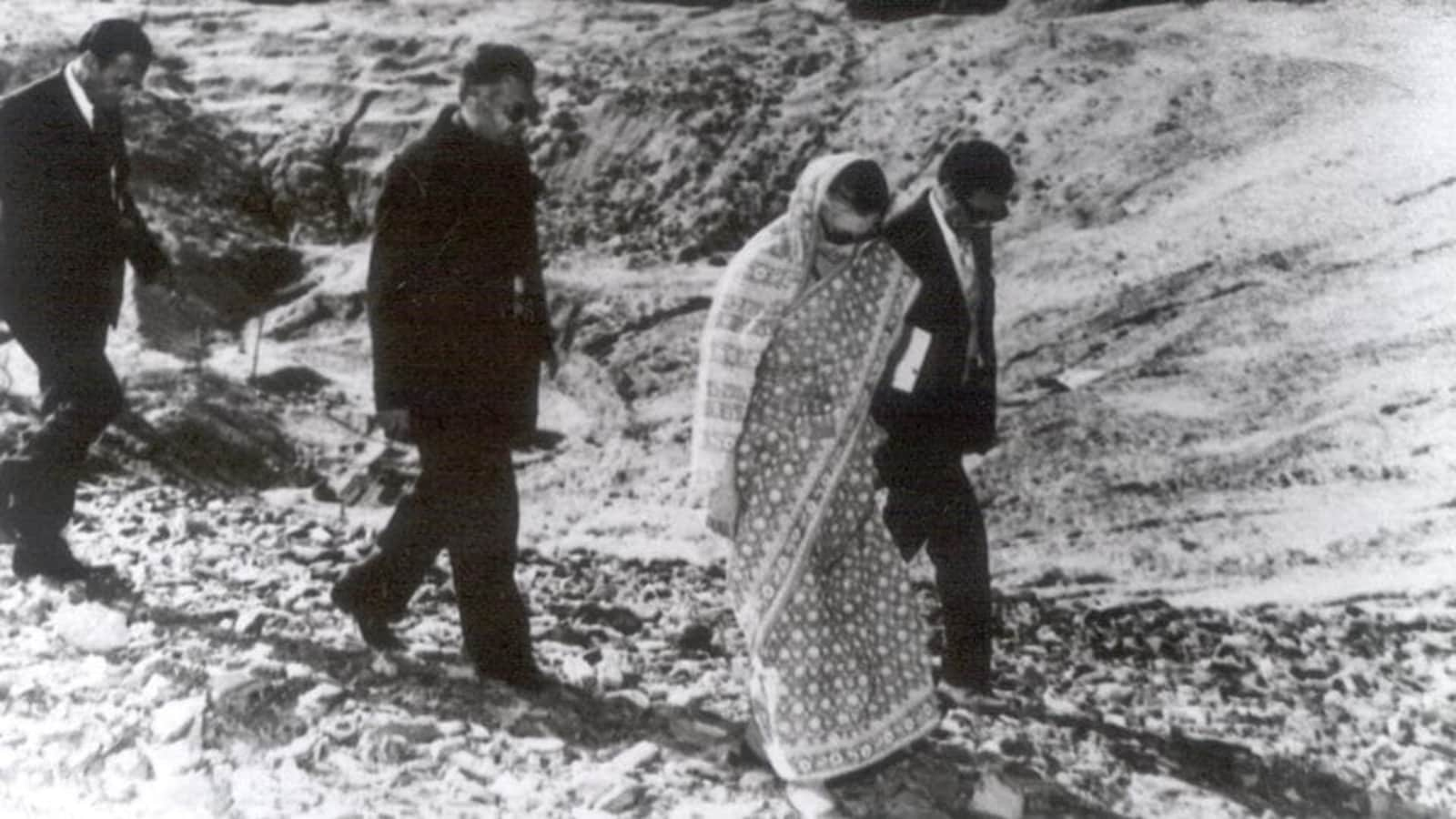 1974May 18, 1974Pokhran 1 and Operation Smiling Buddha
1974May 18, 1974Pokhran 1 and Operation Smiling BuddhaDP Dhar is one of the few in the know about India's first nuclear test. When the test is succesful, Dhar informs Mrs Gandhi with the following coded message: "The Buddha is smiling."
- December 31, 1974Steps down as Minister of Planning1974
- 1975February 7, 1975Resigns from the Rajya Sabha
- February 1, 1975Re-appointed as Ambassador to the Soviet Union1975
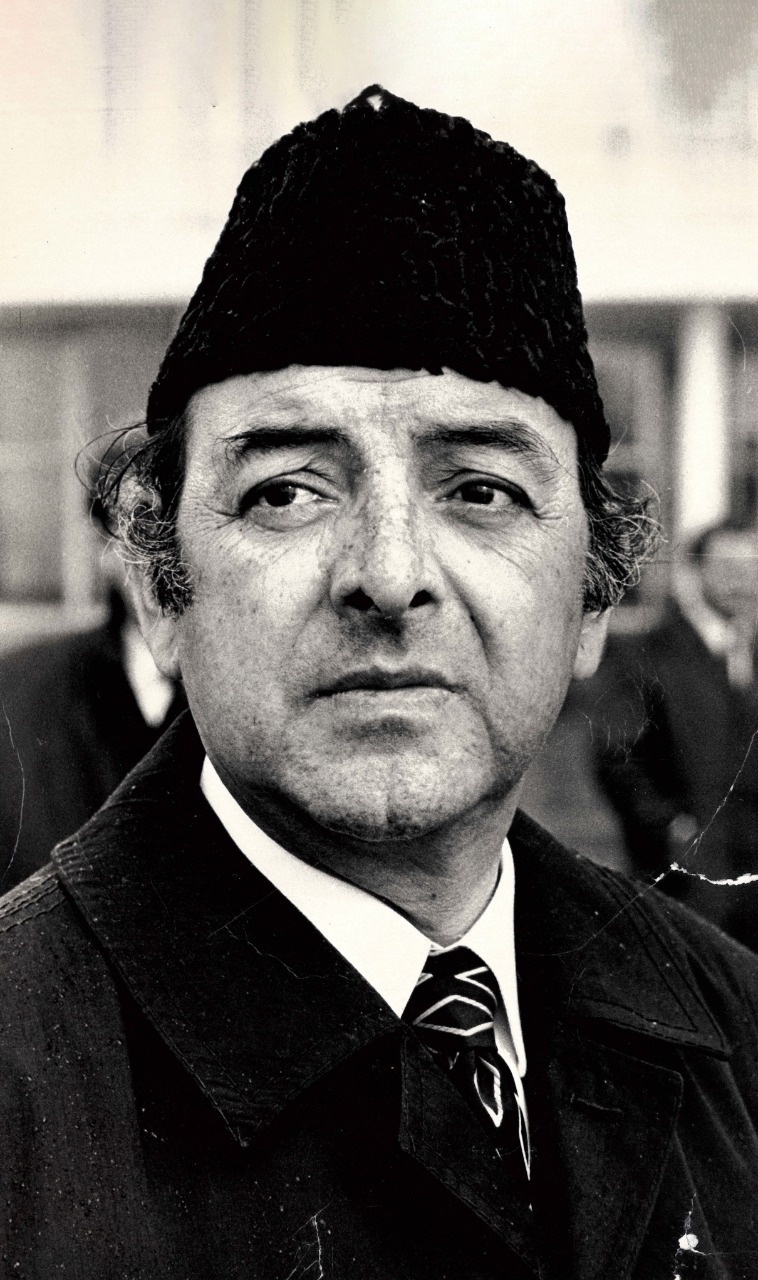 1975June 12, 1975Aged 57, he passes away in New Delhi
1975June 12, 1975Aged 57, he passes away in New DelhiAt only 57, Dhar suffers another heart attack and tragically passes away in New Delhi.